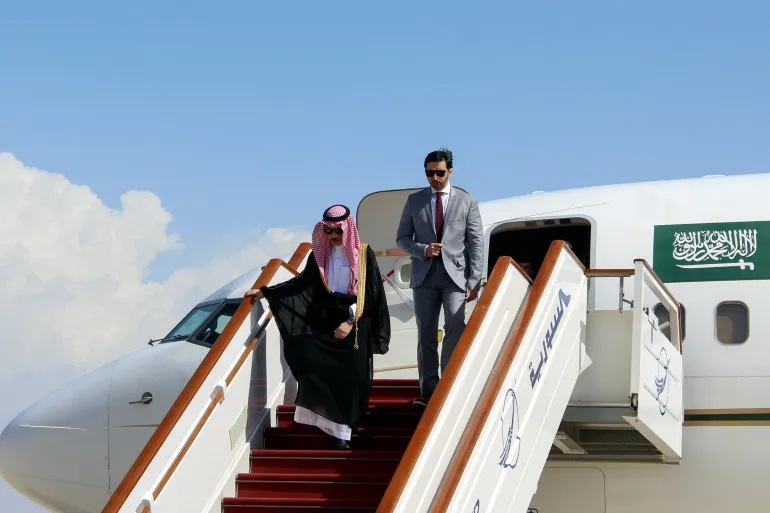Saudi Foreign Minister Prince Faisal bin Farhan has paid an official trip to Damascus and held in-depth discussions with top Syrian leadership to help restore ties between the two nations. During the meeting with the Syrian President, Saudi Foreign Minister discussed steps to achieve a comprehensive political settlement that contributes to Syria’s complete return to the Arab fold and called for the creation of the appropriate conditions for the return of refugees, the IDPs and for aid to reach all Syrian regions. President Bashar-ul-Assad commended the outward-looking and realistic Saudi approach to the region and noted that sound relations between Syria and the Kingdom of Saudi Arabia should be the norm because such ties would not only benefit the two brotherly nations but also played an important role in political stability and economic uplift of the entire region.
The second decade of the 21st century brought the so-called wave of Arab Spring to multiple Monarchies and structured democracies stretching across the Middle East and North African region. The governments in Syria, Libya, Yemen, Tunisia, Egypt, and other nations used force to suppress foreign-sponsored public uprisings that led to civil insurgencies, social polarization, and extreme political turmoil in their countries. The majority of Arab monarchs in the Arab Peninsula including Saudi Arabia, UAE, Jordan, and Kuwait supported anti-government democracy rebels in their neighboring Syria and Libya, severed diplomatic and trade ties with them, and removed their membership in the Arab League.
Historically, the entire Arab land and almost every other nation remained under direct intimidation and blatant interventions by the so-called Western democracies to liberate their social codes, preserve human rights, and transform their systems in line with the Western political culture amid serious threats to their survival from radical Islamist groups including Al-Qaeda, ISIS, and Al-Shabab, etc. Meanwhile, several Arab nations including Saudi Arabia, the UAE, Bahrain, and Jordan introduced political reforms and liberated their social regimes to meet the current-day challenges aroused by the political movements in their nations. During that time, the Middle East region became an arena for global power competition between major power blocs, as Russia and Iran forged alliances with local armed groups while the United States, NATO, and Israel came in the support of other factions. Historically, the Arabs residing in Yemen, Syria, Libya, and Iraq had suffered utmost from war hostilities, humanitarian crises, and the menace of terrorism, while unarmed Palestinians were purely at the mercy of the Israeli regime in the absence of any support from neighboring Arab nations throughout in the past decade.
The Western power contenders could not implement their strategy in the broader Middle East region and abandoned their plans after waging a decade-long destruction, violence, and anarchy in Syria, Libya, Iraq, and Lebanon. Libyan dictator Muammar Al-Gaddafi lost his rule while Bashar-ul-Assad remained successful in rescuing his regime. A democratic Iraq emerged after decades-long bloodshed and violence, Lebanon is still embattled with political and economic chaos while Turkey successfully defeated the threat posed by the Kurdistan separatist movement. Although, the West set the stage for another conflict in the region through the formation of a proposed Arab-Israel alliance against Iran, but Arab wisdom and a Muslim brotherhood prevailed, and an adorable campaign for reconciliation, regional growth, and cooperation has begun in the region. Apparently, Muslim Ummah and the entire Arab land had suffered unimaginably from internal rivalries, and mutual tussle, while their enemies took advantage of their disunity. Now, positive momentum and constructive diplomacy has begun among the Arab nations that needs to be preserved and must be expanded to other Muslim countries for greater benefit and interest of the Muslim Ummah across the globe.







